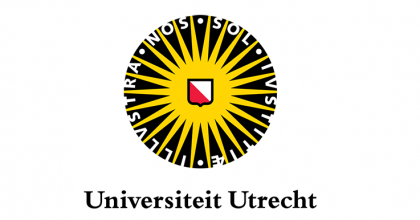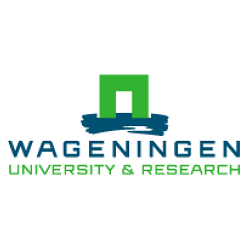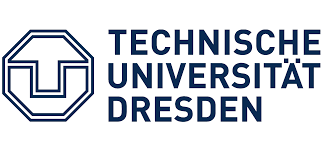Snabbfakta
-
- Utrecht
- Heltid
- Rekrytering
Kategorier:
- Teknik
Titlar:
- Doktorand
Ansök senast: 2024-07-08
PhD: Quantification of Sediment Pathways within Nourished Coastal System
Would you like to research how nourished sand finds its way through the coastal system? Come and join our team in Utrecht as a PhD researcher!
JOB DESCRIPTION
We seek a PhD candidate for the SOURCE programme: Sand nOUrishment strategies for sustainable Coastal Ecosystems. In this programme we study how carefully planned sand nourishments in the present may create the required and desired resilient and dynamic multifunctional coastal landscapes of the future. SOURCE aims to deliver the scientific knowledge, models and design tools to develop and evaluate nourishment strategies in a multi-stakeholder co-creation process.
Your job
Our Living Labs are two sand nourishments along the Dutch coast, which will be co-designed, monitored and evaluated by the SOURCE consortium. There will be 12 PhD candidates and postdoc researchers at 8 academic institutes in total, collaborating closely with 25 partners from government organizations, research institutes, nature organizations and industry. In this PhD project you will focus on the sediment pathways and sediment connectivity within (future) nourished coastal systems.
Large-scale sand nourishment has been essential in the Dutch government’s strategy to sustainably maintain flood protection levels along the Dutch coast for more than 30 years. Nourishment volumes will have to increase to keep up with the expected acceleration in sea level rise. Currently, however, there is a lack of fundamental knowledge on how the nourished sand finds its way through the coastal system, and what the long-term, cumulative effects are for the coast as an ecosystem. Long-term (50+ years) datasets and satellite imagery of the nourished Dutch coast, combined with novel data from dedicated SOURCE Living Labs, provide the opportunity for learning how coastal zones respond to repeated and large-scale nourishment.
Your main task will be to develop the understanding and approaches for quantifying sediment pathways of nourished sand along the sandy Dutch North Sea coast. Current maintenance of flood safety and nature functions along the Dutch coast involves adding sand at erosive cross-shore transects and placing the sand as shoreface nourishments within sandbar systems. You will combine extensive data analyses, sediment sampling and field experiments, supported by numerical modelling, to investigate:
- the impact of nourishments on adjacent beaches; and
- the interaction of nourishments with local morphodynamics, such as sandbars.
Through close collaboration with your TU Delft counterpart you will bridge the gap between the processes that drive nourishment-scale morphodynamics and sediment pathways at the scale of the Dutch coast.
You will be based at the Physical Geography department at Utrecht University, where you will be part of a vibrant PhD community and research group with renown expertise in coastal systems. As a project team we will collectively gain system understanding, be relevant in the application of our work, and communicate in an open and constructive way. You will gain skills in science communication for interdisciplinary collaboration and for explaining your results to partners that intend to use the knowledge. You will present your work at meetings and (inter)national scientific conferences.
To support academic and personal development, PhD candidates follow courses and assist in teaching Earth Sciences at Bachelor's and Master's level. Together these activities amount to twenty percent of the contracted time.
REQUIREMENTS
We look forward to your application if you have the following qualifications:
- a Master’s degree in physical geography, coastal or civil engineering, or a related discipline;
- affinity with and skills in quantitative data wrangling and spatial statistics, feeling for coastal and sedimentary dynamics would be beneficial, familiarity with Python, Matlab, R, or other programming languages would be convenient;
- a keen interest for designing smart experiments, and setting up and carrying out challenging experimental field work;
- motivation to work in a transdisciplinary team, consisting of geomorphologists, civil engineers, ecologists and end-users from the private and public sectors;
- a professional and collaborative attitude towards work, co-workers and partners, and communicate in an open and constructive way;
- good English oral and writing skills, as you are expected to publish the findings in scientific journals and effectively communicate results to end-users.
CONDITIONS OF EMPLOYMENT
We offer:
- a position for one year, with an extension to a total of four years upon a successful assessment in the first year, and with the specific intent that it results in a doctorate within this period;
- a working week of 36 hours and a gross monthly salary between €2,770 and €3,539 in the case of full-time employment (salary scale P under the Collective Labour Agreement for Dutch Universities (CAO NU));
- 8% holiday pay and 8.3% year-end bonus;
- a pension scheme, partially paid parental leave and flexible terms of employment based on the CAO NU.
In addition to the terms of employment laid down in the CAO NU, Utrecht University has a number of schemes and facilities of its own for employees. This includes schemes facilitating professional development, leave schemes and schemes for sports and cultural activities, as well as discounts on software and other IT products. We also offer access to additional employee benefits through our Terms of Employment Options Model. In this way, we encourage our employees to continue to invest in their growth. For more information, please visit Working at Utrecht University.
EMPLOYER
Universiteit Utrecht
A better future for everyone. This ambition motivates our scientists in executing their leading research and inspiring teaching. At Utrecht University, the various disciplines collaborate intensively towards major strategic themes. Our focus is on Dynamics of Youth, Institutions for Open Societies, Life Sciences and Pathways to Sustainability. Sharing science, shaping tomorrow.
Utrecht University’s Faculty of Geosciences studies the Earth: from the Earth’s core to its surface, including man’s spatial and material utilisation of the Earth – always with a focus on sustainability and innovation. With 3,400 students (BSc and MSc) and 720 staff, the faculty is a strong and challenging organisation. The Faculty of Geosciences is organised in four Departments: Earth Sciences, Human Geography & Spatial Planning, Physical Geography, and Sustainable Development.
The team of the department of Physical Geography excels in research and education on BSc, MSc and PhD level. We research processes, patterns and dynamics of Earth’s systems from the mountains to the sea, and the interaction in between. This knowledge is essential for the sustainable management of our planet and to guarantee the availability of resources for the next generations. We are a lively department that hosts an active early career community (PhD candidates, researchers and lecturers).
The SOURCE programme aims to study how carefully planned sand nourishments in the present may create the required and desired resilient and dynamic multifunctional coastal landscapes of the future. This is done by deliver the scientific knowledge, models and design tools to develop and evaluate nourishment strategies in a multi-stakeholder co-creation process.
ADDITIONAL INFORMATION
For more information, please contact Dr Timothy Price via t.d.price@uu.nl.
Candidates for this vacancy will be recruited by Utrecht University.



